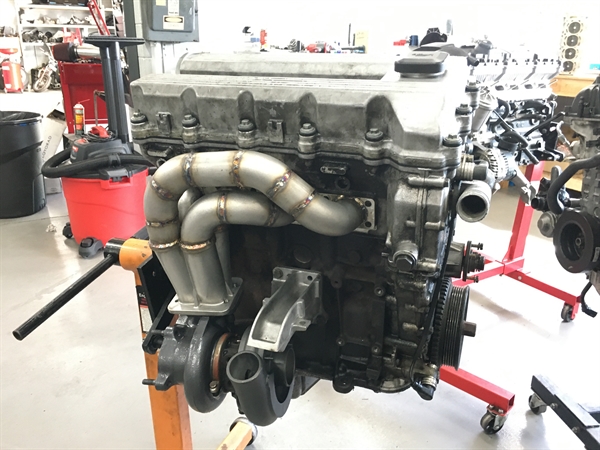BMW 318ti: A Classic Compact with Timeless Allure
Trick Features to Search For When Investing In an Engine for Automotive Applications
When thinking about the acquisition of an engine for auto applications, numerous key attributes call for mindful analysis to make certain optimal efficiency and performance. From power and efficiency capabilities to sustain effectiveness, durability, and adherence to discharges standards, each aspect plays a crucial duty in figuring out the engine's suitability for details vehicle requirements. Moreover, cost-effectiveness continues to be an essential factor in the decision-making procedure, balancing top quality with monetary considerations. These attributes collectively add to the overall effectiveness and reliability of the engine, affecting the driving experience and long-term contentment of the user.
Power and Performance
When choosing an automobile engine, purchasers focus on power and performance to make sure ideal driving experience and performance. The power outcome of an engine, often measured in horse power (HP) or kilowatts (kW), dictates the acceleration, full throttle, and total capacities of an automobile. Higher power ratings normally result in quicker acceleration and far better performance, particularly during overtaking or lugging hefty loads. Efficiency, on the various other hand, encompasses a broader range of characteristics, consisting of gas performance, exhausts, dependability, and overall driving dynamics. A well-performing engine not just delivers power successfully but also operates efficiently throughout various speed ranges and driving problems.
Buyers frequently consider the engine's torque result together with its power ranking. Torque, determined in pound-feet (lb-ft) or Newton-meters (Nm), reflects the engine's rotational pressure, influencing the car's ability to tow, climb slopes, and accelerate from dead stop. A balance in between power and torque is essential for attaining a responsive and functional driving experience. Additionally, variables such as engine turbocharging, variation, and hybrid innovations play substantial roles in boosting both power and efficiency levels. Inevitably, selecting an engine that uses a powerful mix of power and performance makes certain a rewarding and effective driving experience. bmw 318ti.
Gas Performance
Maximizing fuel efficiency is a critical consideration for consumers when examining auto engine alternatives. Modern engines with features like direct fuel injection, turbocharging, and variable valve timing can substantially boost fuel effectiveness by enhancing burning procedures and lowering power loss.

Longevity and Dependability
Attaining lasting efficiency and reliable procedure is important for customers examining the resilience and integrity of automotive engines. When taking into consideration an engine for automotive applications, toughness describes the engine's ability to hold up against wear, tension, and extreme operating problems over an extended duration. Dependability, on the other hand, indicates that the engine can consistently execute its desired feature without unexpected malfunctions or failures.
Consumers must seek engines constructed with high-grade materials and accurate engineering to make sure long life. Elements such as pistons, crankshafts, and bearings ought to be durable to deal with the engine's power outcome without early wear. In addition, engines outfitted with innovative cooling systems, effective lubrication, and robust filtration mechanisms tend to display greater degrees of integrity.
Normal maintenance and adherence to manufacturer referrals are likewise crucial factors in protecting an engine's sturdiness and dependability. By adhering to upkeep routines, utilizing suggested liquids, and resolving any type of problems quickly, consumers can make best use of the life expectancy and performance of their automotive engines. Ultimately, focusing on longevity and dependability in engine choice can result in a more enjoyable possession experience with fewer unexpected disruptions.
Emissions Conformity
Making certain compliance with emissions laws is an essential element of assessing automotive engines for eco mindful customers. With increasing problems regarding air quality and ecological impact, rigorous discharges criteria have actually been look at here now established internationally to reduce dangerous contaminants launched into the ambience. When buying an engine for auto applications, it is necessary to consider its emissions conformity to minimize the carbon footprint and stick to legal requirements.
Modern engines are outfitted with advanced discharge control technologies such as catalytic converters, exhaust gas recirculation (EGR) systems, and careful catalytic decrease (SCR) to decrease unsafe exhaust gases like nitrogen oxides (NOx), carbon monoxide (CARBON MONOXIDE), and hydrocarbons (HC) These systems play a crucial function in making certain that the engine meets the defined emissions requirements and runs within acceptable limitations.

Cost-effectiveness
When thinking about auto engine acquisitions, evaluating cost-effectiveness is paramount for consumers seeking both performance and value. Cost-effectiveness in engine acquisition involves greater than simply the initial acquisition rate. It encompasses the general costs connected to upkeep, gas usage, and prospective repair services over the engine's life-span. Deciding for an engine that supplies an equilibrium in between in advance expenses and long-lasting cost savings can lead to substantial advantages for the consumer.
Engines that are developed to make the most of gas economy can lead to significant savings over time, particularly for individuals that drive frequently or over lengthy distances. bmw 318ti. Furthermore, considering the accessibility and price of spare components and maintenance can contribute to the overall cost-effectiveness of an engine.

Verdict
Finally, when buying an engine for auto applications, it is essential to think about vital features such as power and performance, fuel longevity, reliability and efficiency, emissions compliance, and cost-effectiveness. These factors are important in guaranteeing that the engine meets the requirements of the vehicle and operates properly in numerous driving problems - bmw 318ti. Making a notified decision based on these standards will inevitably cause a efficient and successful auto engine acquisition
From power and efficiency capabilities to fuel adherence, longevity, and effectiveness her response to discharges standards, each facet plays a vital role in establishing the engine's viability for particular auto requirements. Engines designed to run on different fuels such as electrical power, hybrid systems, or biofuels can supply enhanced gas economic climate and reduced discharges contrasted to conventional fuel or diesel engines. Consumers need to very carefully consider the gas effectiveness rankings useful link and technologies included into auto engines to make informed investing in decisions that straighten with their priorities for price savings and sustainability.
When taking into consideration an engine for vehicle applications, durability refers to the engine's capability to withstand wear, anxiety, and harsh operating conditions over a prolonged period.In final thought, when acquiring an engine for automotive applications, it is crucial to take into consideration vital functions such as power and efficiency, gas longevity, integrity and performance, emissions conformity, and cost-effectiveness.